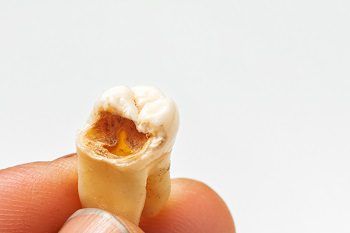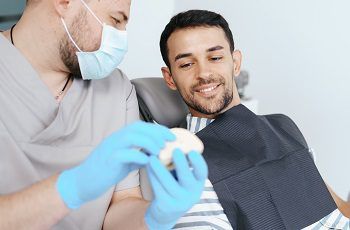Prognathism: Corrective jaw surgery for protruding jaws.
Dr. Hoss Abar
Prognathism, or a protruding jaw, is a medical condition. Your jaw juts out or protrudes when you have Prognathism. Your lower jaw is frequently involved in this. This is often called lower jaw protrusion. However, while symptoms may be present from birth, they may also appear later in life due to oral injuries (such as a blow to the mouth) or bad habits from infancy (like thumb-sucking). But you don't have to worry if you have it because effective mandibular prognathism treatments are available to meet your needs. Treatment includes a combination of corrective jaw surgery and orthodontics.
Prognathism has different types, like:
- Mandibular Prognathism: a protruding lower jaw.
- Maxillary Prognathism: a protruding upper jaw.
- Bimaxillary Prognathism: your lower and upper jaws protrude simultaneously.
Depending on which jaw is impacted, Prognathism can result in either an overbite or an underbite. Therefore, consult your doctor if you have trouble speaking, biting, or chewing and think your jaw may be sticking out.
What are the symptoms of Prognathism?
People with prognathic jaw might experience a wide range of symptoms. Typically, symptoms depend on the type and degree of your condition. Typical prognathism signs include:

- Your lower, upper, or both jaws may protrude.
- Abnormalities of the temporomandibular joint (TMJ).
- Enamel erosion
- Bruxism.
- Underbites or overbites.
- Misaligned jaw.
- Misaligned teeth.
- Trouble while chewing.
- Speech issues.
- Breathing problems
Does Prognathism affect my overall health?
Malocclusion, or improper fit of your teeth, can result from a protruding jaw. Malocclusion can lead to various health problems, such as dental wear and tear, difficulty chewing, and speech disorders.
It is also more challenging to brush and floss around misaligned teeth. As a result, many prognathism sufferers are at higher risk for gum disease and tooth decay.
Causes of prognathism
Prognathism is the abnormal growth of your face bones. There may be several causes for this. People frequently inherit broader jaws. In other words, there is no link between the syndrome and any underlying medical disorders; instead, it is passed down to children by their parents. Prognathism, however, may occasionally be a sign of specific diseases or syndromes, including:
- Acromegaly: The overproduction of growth hormone by your body leads to this pituitary gland disease. It may result in tissues enlarging, such as an enormous jaw.
- Crouzon syndrome: This hereditary disease results in an improper fusion of the seams in your skull. Prognathism or other head and facial abnormalities may emerge from this.
- Syndrome of basal cell nevus: This genetic disease results in unusual face growth. This can occasionally include Prognathism.
- Acrodysostosis: Acrodysostosis patients typically have a small upper jaw, which contrasts with their larger lower jaw. Short arms and legs, as well as a short nose, are further signs of acrodysostosis.
- Down syndrome: Some cases of excessive jaw growth can occur because people with Down syndrome have an extra chromosome that impacts development.
When to see your healthcare provider?
Consult your healthcare provider if your jaw protrudes. They can assist in determining whether Prognathism is merely a cosmetic problem or whether it is affecting your health and ability to work. Call your healthcare practitioner as soon as possible if your condition results in significant issues, such as trouble breathing, speaking, or chewing.
What are my treatment options to treat Prognathism?
Treatment for Prognathism is based on how bad your condition is. Surgery is typically necessary for skeletal problems like prognathic face. Orthodontics, like braces, treats some mild cases. Most cases require a surgical and orthodontic treatment combination.
Corrective jaw surgery: Orthognathic surgery, often known as corrective jaw surgery, involves realigning your jaw bones to enhance look, health, and function. Your teeth will fit better once your orofacial bones are in the appropriate position.

Orthodontic treatment: Orthognathic surgery is typically combined with braces or invisible aligners. You will start your treatment with braces and eventually need jaw surgery after your teeth are correctly aligned. However, every patient receives a unique course of treatment. Your healthcare professional can explain what to anticipate in your particular circumstance.
What is the recovery time of corrective jaw surgery?
Recovery from orthognathic surgery often takes nine to twelve months. You will receive thorough instructions from your healthcare professional throughout this period, including suggested diets. You can return to work, school, and your regular activities in approximately two to three weeks, even though a full recovery could take up to a year.
What are the complications of corrective jaw surgery?
Orthognathic surgery carries risks, just like any surgical procedure. Potential issues include:
- Infection following surgery
- Nerve damage
- Jaw ache
- Bite issues
- Relapse of jaw position
Conclusion
If you have a prognathic jaw, it can affect your dental health and general well-being. Prognathic jaw sufferers could also experience shame or self-consciousness over their looks. Orthognathic surgery can improve your chewing ability, lessen tooth wear and tear, and improve your facial characteristics. Speak with your healthcare professional if you suspect Prognathism.
Contact your Pinole dentist, Dr. Hoss Abar, DDS, MSD at Abar Orthodontics, to know more about Prognathism.
Resource:
Surgical Orthodontics Specialist
This media/content or any other on this website does not prescribe, recommend, or prevent any treatment or procedure. Therefore, we highly recommend that you get the advice of a qualified dentist or other medical practitioners regarding your specific dental condition.
More To Explore
About Us
We believe that every patient deserves to feel confident about their smile. Years of experience creating beautiful and flawless smiles.
Opening Hours:
Monday - Thursday: 8:00 AM - 5:00 PM
Friday: 8:00 AM - 12:00 PM
Saturday - Sunday: Closed
Abar Orthodontics, Pinole, CA
1500 Tara Hills Drive., Suite 204
Pinole, CA 94564
Abar Orthodontics, San Leandro, CA
145 East 14th street., #100
San Leandro, CA 94577
© 2026Abar Orthodontics | All rights reserved | Powered by:Vigorant, Inc.
